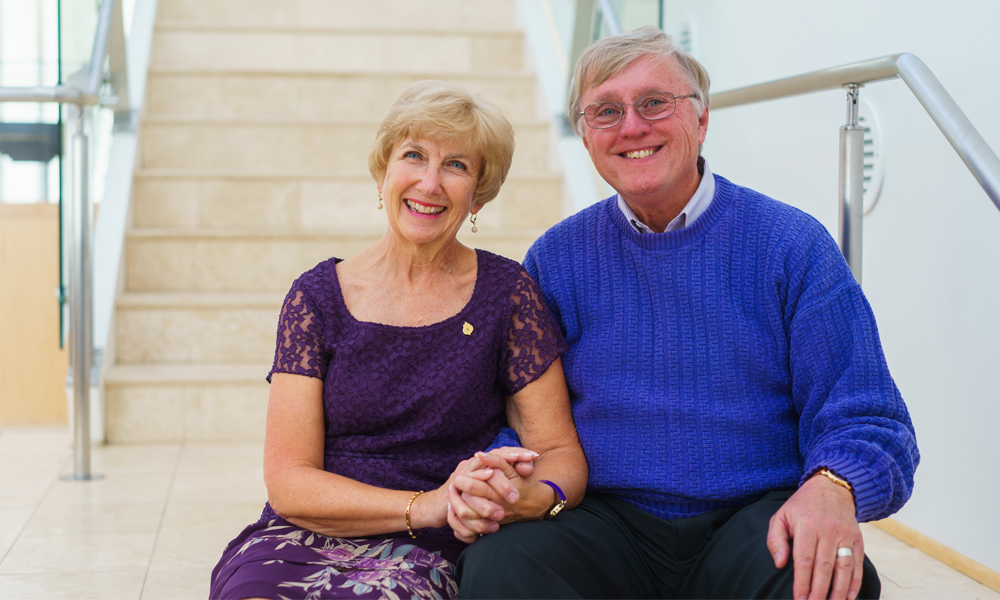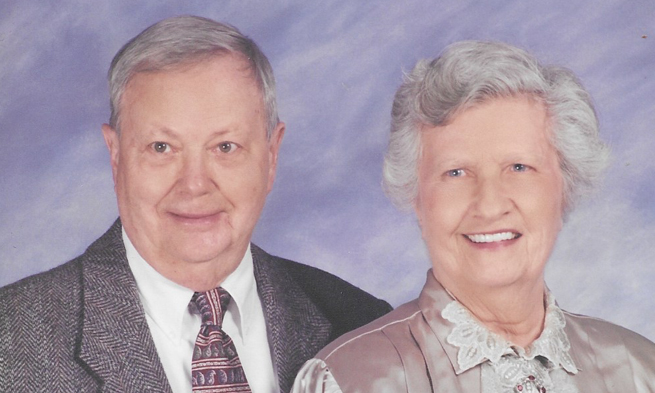“Musings on the 95th Anniversary of AAUW-Harrisonburg” – by Our Branch President, Laura Zarrugh
The Harrisonburg chapter of the American Association of University Women (AAUW) is
celebrating its 95th anniversary this year 2024. From its inception, AAUW has championed women’s rights. As we celebrate our longevity and achievements, I would like to share a few thoughts about how far we, as women, have come since 1929 and why this history is worth remembering at the present moment.
AAUW-Harrisonburg was born in 1929 on the campus of what is today, James Madison
University. In 1929, JMU was known as the State Teachers’ College at Harrisonburg and
AAUW-Harrisonburg’s 15 founding members, our “foremothers,” were members of the faculty
and staff. Their purpose, according to a contemporary newspaper article, was to encourage
women to pursue higher education and career advancement. The chapter’s first president was
Ann Virginia Harnsberger. From 1924 until her death in 1931, Virginia Harnsberger was a
librarian at the Teacher’s College. Tragically, her life was cut short at age 39. Four of the other
charter members have buildings on JMU’s campus named in their honor: Katherine M. Anthony
and Mary Louise Seeger (Anthony-Seeger Hall), Bernice Varner (Varner House), and Margaret
Vance Hoffman (Hoffman Hall).
But all 15 of AAUW-Harrisonburg’s charter members were exceptional women, if for no other
reason, then because they were college educated in an era when all but a minority of individuals of either sex graduated from high school, an even smaller minority graduated from four years of college and only a small proportion of that minority were women. In 1929, it had been only nine years since passage of the 19th Amendment to the Constitution established women’s right to vote after decades of struggle. In the 1920s, women made up only 20% of the nation’s paid labor force. The number was small, owing largely to the fact that only the minority of women who were paid for their labor were actually counted. In the 1920s it was customary for many women who worked outside the home to voluntarily or involuntarily leave the labor force upon marriage.
At that time, over 90% of women in the U.S. married and the average married woman bore three children, less than half the average number of children born to women in the preceding century. This drop in women’s fertility rate occurred despite legal obstacles to family planning, such as the “Comstock Act” of 1873, also known as the “anti-obscenity act,” which made it illegal to spread or send information about family planning through the mail. Today, this “zombie law” is being resurrected as a weapon against women’s right to control their own bodies.
It is also significant that all but one of AAUW-Harrisonburg’s 15 foremothers appear to have
been unmarried in 1929. The lone married women is identified in the chapter’s history as “Mrs.”
and her husband’s surname, probably because it was customary for women to gain status but lost their personhood and own name upon marrying. In addition, the so-called “marriage bar,” which existed into the 1970s, often forced married women out of even such traditional “women’s jobs” as teaching. Today, women, and especially those with children, still face challenges in the workplace.
Most, if not all, of the 15 charter members of AAUW-Harrisonburg might have been described as “career women,” a term that gained currency in the 1930s and was understood to mean women who devoted their lives to a career or profession. Because the demands of career and family have always involved a very difficult balance, “career women” were once less likely to be married and are still likely to struggle with the decision to have children, if they hope to advance in a career.
As career women, our foremothers might even have been mocked as “old maids,” which was a
way to belittle unmarried women in the 1920s. Today, it is shocking that unmarried as well as
childless women are still being ridiculed and demeaned, accused of having no stake in the future and told that they do not deserve the same right to vote as people who have their own biological children. This way of thinking seems to suggest that people should only care about or have a stake in the future of their own DNA. Anyone else apparently has nothing of value to offer society and should have no say in the future.
As women, we’ve come a long way since 1929. At the same time, we still are not guaranteed
equal rights under the law and our fundamental rights remain at risk.
Member Juanita Mendenhall received the IFHE Distinguished Service Award for her outstanding contribution to the International Federation for Home Economics. Juanita was nominated for her active involvement in projects and activities that have furthered the profession and provided global outreach to numerous countries outside of the borders of the Caribbean Home Economics Association, especially Ghana and Sierra Leone. Juanita has been a member of IFHE for 46 years and has held various offices over the years. She received the award during the Closing Celebration at the XXV World Congress 2024 in Galway, Ireland in June.
Member Monica Robinson was elected to Harrisonburg City Council in 2023.
Honorary Member Deanna Reed is Mayor of Harrisonburg.
Member Chris Edwards and her husband Robin McNallie gave a July 4 presentation at the Harrisonburg Unitarian Universalist Fellowship on “1619, 1776, and America Now”…. recounting our black history, a short video on Democracy by Leonard Cohen, and more.
Member Heather Banks has written a poem, “Climbing Toward the Light“, which will appear 7/1/21 in Artemis, a journal of about 200 pages of poetry, prose, and artwork, published annually by Taubman Art Museum in Roanoke, Virginia. This year’s theme is Mothers. Artemis Journal is one of the few journals in America that blends art, poetry, and prose throughout its pages. This year’s journal will feature 133 artists and writers from the Blue Ridge Mountains and beyond. 15% of earnings will be donated to a women’s shelter for abused women & families in Southwest Virginia.
Member Rosemarie Palmer has been informed that her 100+ page publication “Local Black History in Harrisonburg and Rockingham County, Virginia 1619-2020” will be used as a resource in the new elective course, “African American History”, in Rockingham County public schools this coming school year. Dale MacAllister was her co-editor. Appendices are rich in listings of people and places. Copies are for sale at the Harrisonburg-Rockingham Historical Society Museum in Dayton, where she is a volunteer and contributor of research articles to their newsletter. She has eleven publications listed on the World Catalog website, mostly researching local people and places. She also served on the Newsletter Committee for the JMU-Lifelong Learning Institute. She is also on the Board of the Shenandoah Valley Black Heritage Project and has contributed information on local black history to the Harrisonburg Visitors Center’s website.
Tina Updike and Phil Updike’s Inaugural Beck Faculty Fellowship Awarded
‘Madison Moment’ Spurs Alumni Giving to Support Art Faculty and Staff
Inaugural Beck Faculty Fellowship Awarded for 2020–2021

SUMMARY: The Beck Faculty Fellowship is presented annually to a full-time faculty member in the School of Art, Design and Art History who shares a vision for the visual arts on campus and in the surrounding community.
Member Christina (Tina) Updike grew up taking art classes at Walter Johnson High School in Bethesda, Maryland, inspired by a mother who was an artist. “Mom started out doing pencil work… very detailed, beautiful sketches… and then moved to painting. She mainly worked in oils and then switched to acrylics, which were less expensive, as they became popular.” According to Tina, her mom won several first-prize awards in local art shows in the D.C. area—and even designed the stained-glass window in the chancel of North Bethesda United Methodist Church, where Tina would marry Phillip (Phil) Updike in 1974.
Tina started as visual resources specialist on September 1, 1974, and went on to serve in the position for 38 years. During her tenure, Tina envisioned and helped to implement the Madison Digital Image Database (MDID), a digital library of more than 120,000 images. She, along with art history professor Dr. Kathleen G. Arthur, received a JMU technology Grant from the Center for Instructional Technology (CIT) to develop the digital image database for classroom teaching and student study of art history in 1997. Tina worked with CIT staff members Craig Baugher, Kevin Hegg and Andreas Knab to create an image archiving and multimedia teaching web application, and MDID was rolled out for use by JMU students and faculty in Fall 1998. Three years later, MDID was made available as freely distributed open-source application software that institutions could use to house their own digital images. MDID is now an educational tool that is used by over several hundred institutions worldwide.
In 2002, with Tina continuing her work on MDID and Phil having transitioned into a career in real estate, the couple decided to establish a gift at their alma mater that would support professional development opportunities for faculty and staff in SADAH. They contacted the JMU Foundation and learned that interest accrued from a Professorship would eventually allow them to provide SADAH with a steady pool of funding for such opportunities. Tina and Phil created the Paul and Lillieanna Beck Professorship with an estate commitment in honor of her parents (pictured below).

“They were thrilled and honored,” shares Tina of her parents’ response to the establishment of the Professorship in their name. After Tina and her sisters left home, her mom Lillieanna pursued her artwork and graduated with a certificate from the Corcoran School of Arts & Design. Her dad Paul had a 50-year career as a Certified Public Accountant. Tina’s parents bought a second home at Massanutten before fully retiring in the Shenandoah Valley. “They loved JMU, where they attended many concerts and performances.” Lillieanna passed away in 2010 and Paul passed in 2016. Lillieanna’s paintings (like the one below) can be seen throughout the Updike’s home, in family member residences, and in the community at Sentara RMH Medical Center as well as Brookdale Senior Living where Tina’s parents lived for many years.
Over the years, funding provided by the Professorship has afforded many opportunities for art faculty and staff to further their teaching and development. In 2020, Tina and Phil learned that the fund balance for the Professorship had reached the Fellowship level, and they decided to offer the inaugural Paul and Lillieanna Beck Faculty Fellowship. The Beck Faculty Fellowship will be presented annually to a full-time faculty member in SADAH who shares a vision for the visual arts in the campus and surrounding community. A Fellow must be deeply involved with JMU students, giving them opportunities to learn and thrive, and a leader who advances the visual arts in Harrisonburg City and Rockingham County.
Art professor, painter and diversity leader Susan Zurbrigg was selected by JMU’s College of Visual and Performing Arts (CVPA) as its first Beck Faculty Fellowship recipient. Susan joined JMU in 2000 and is the new director of diversity, equity, and inclusion initiatives for the CVPA. Tina worked with Susan for 12 years before retiring with the staff emerita designation in 2012, and Phil knew Susan as a real estate client. “Susan has made an impressive impact on her students, her faculty colleagues and the Harrisonburg/Rockingham community. She is bringing to the forefront the history of the African American population in our local area, which is so important,” says Tina. “In light of what is taking place in America, Susan’s work with the CVPA, JMU students, and art students in the public schools is vital,” adds Phil.
The College of Visual and Performing Arts has awarded assistant professor of architectural design Nick Brinen with the 2023 Beck Fellowship. The $6,000 annual Fellowship recognizes a full-time faculty member in the School of Art, Design and Art History who works to advance the visual arts at JMU and in the Harrisonburg-Rockingham County community, focuses on student success, embraces new technologies in their classrooms, and creates opportunities that make students thrive.
The College of Visual and Performing Arts has awarded Kevin Phaup with the 2023-2024 Beck Fellowship. He is an Assistant Professor of Industrial Design.
Beck photos courtesy of the Updike’s; all other photos by JMU Creative Media.
